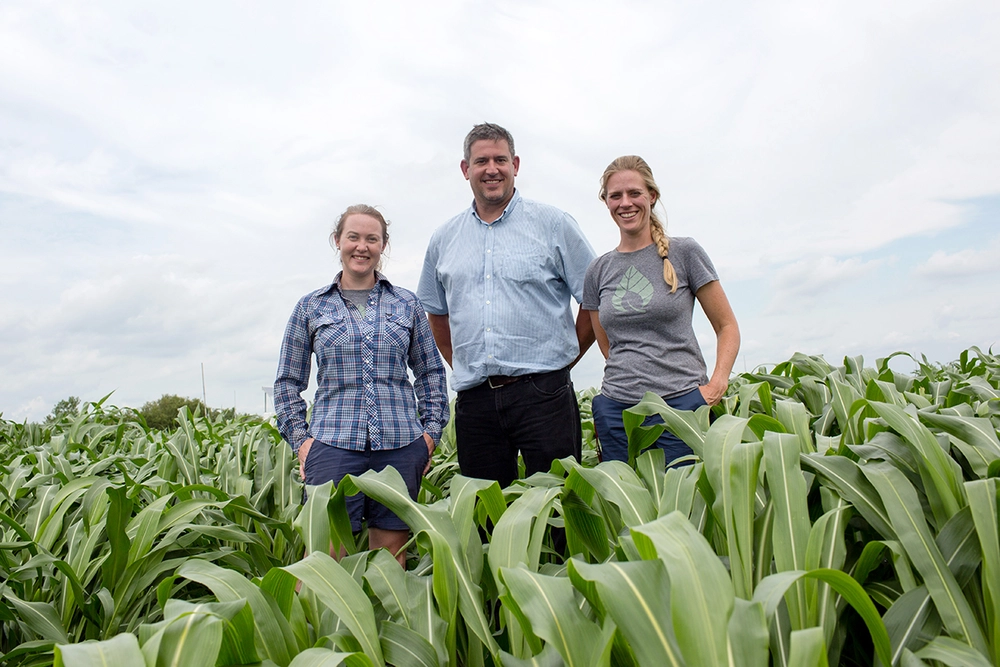
Published in the Journal of Experimental Botany, the review explores how higher temperatures influence plant growth and viability despite the greater availability of atmospheric CO2, a key component of photosynthesis. Excessive heat can reduce the efficiency of enzymes that drive photosynthesis and can hinder plants’ ability to regulate CO2 uptake and water loss, the researchers write. Structural features can make plants more – or less – susceptible to heat stress. Ecosystem attributes – such as the size and density of plants, the arrangement of leaves on plants or local atmospheric conditions – also influence how heat will affect crop yields.
The review describes the latest scientific efforts to address these challenges.
“It’s important to have an understanding of these issues across scales – from the biochemistry of individual leaves to ecosystem-level influences – in order to really tackle these problems in an informed way,” said lead author Caitlin Moore, a research fellow at the University of Western Australia and an affiliate research fellow at the Institute for Sustainability, Energy, and Environment at the University of Illinois Urbana-Champaign. Moore led the review with Amanda Cavanagh, another U. of I. alumna now at the University of Essex in the U.K.
“Historically, there’s been a lot of focus on rising CO2 and the impact that it has on plants,” said co-author Carl Bernacchi, a professor of plant biology and of crop sciences and an affiliate of the Carl R. Woese Institute for Genomic Biology at the U. of I. “And it is an important factor, because we are changing that carbon dioxide concentration enormously. But it’s a small part of the bigger story. Once you throw changing temperatures into the mix, it completely messes up our understanding of how plants are going to respond.”